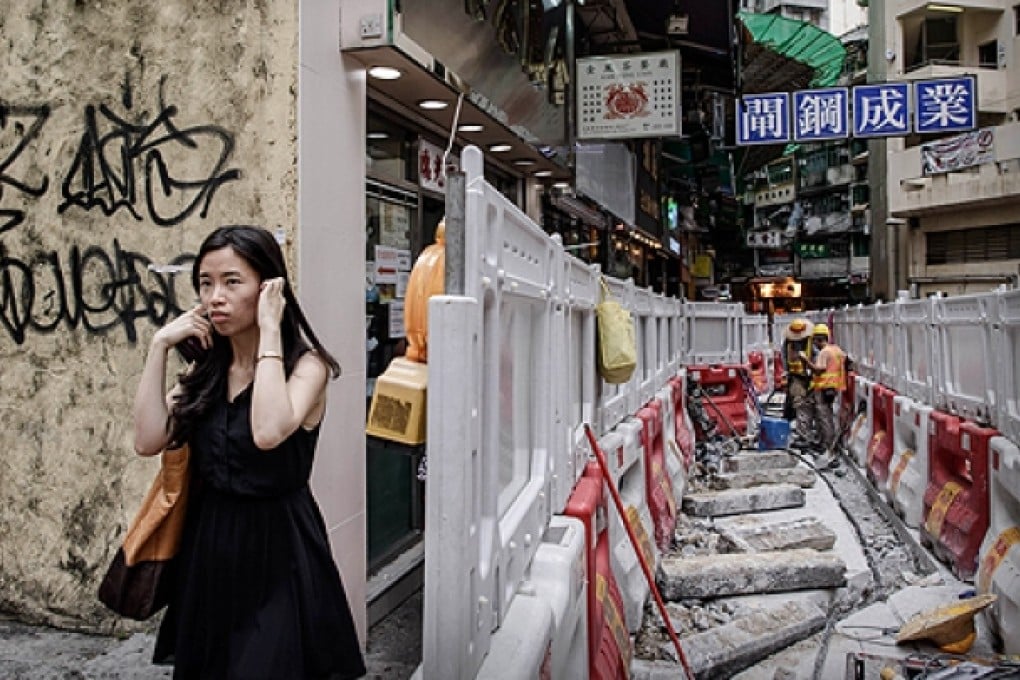
With its pounding construction sites and constant roar of traffic, Hong Kong is a cacophony of noise with experts and residents calling on authorities to keep a lid on the din for the sake of public health.
In a densely-packed city with a shortage of housing, older buildings are frequently torn down and replaced as developers snap up prime real estate. On the roads the battle between buses, trams and cars is won by the piercing drone of continuous car horns.
For banker Kenny Chen, 35, the last 15 months have been a nightmare as the area around his apartment block in the upmarket central Mid-Levels neighbourhood has surrendered to juddering construction sites.

“My wife had twins a month ago – she was on maternity leave at home but because of all the noise she became very anxious and possibly the babies did too. She ended up giving birth two and a half months early.”
His neighbour Debra Rull, a 60-year-old homemaker from Hong Kong who has lived in the city for 50 years, says the noise has got markedly worse in the last decade.